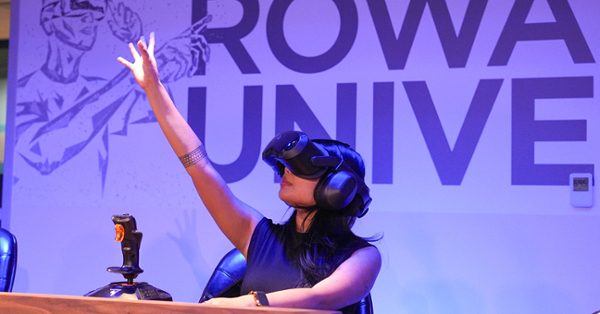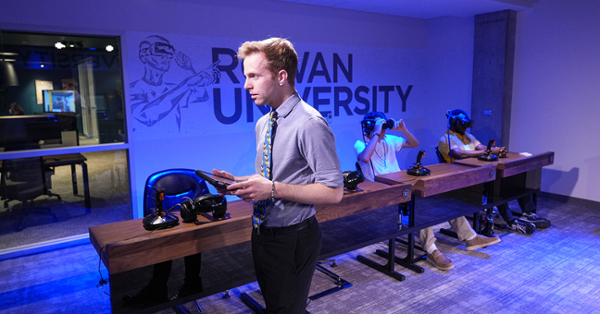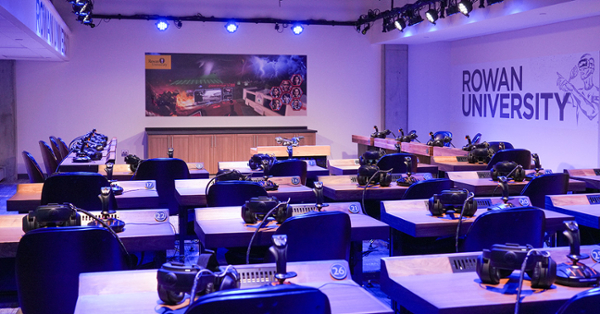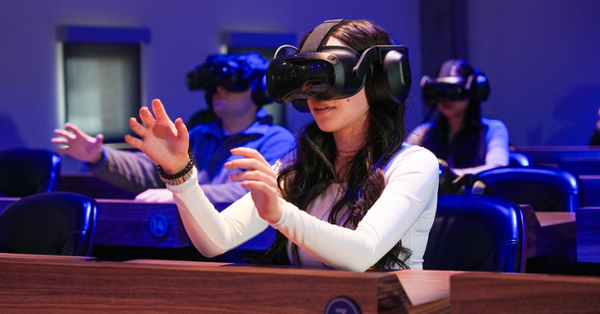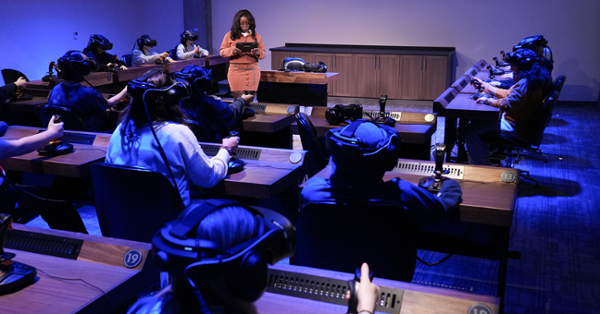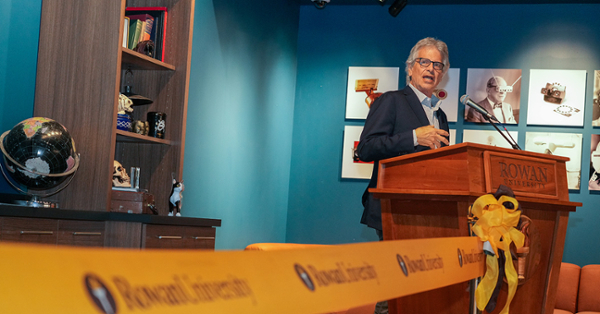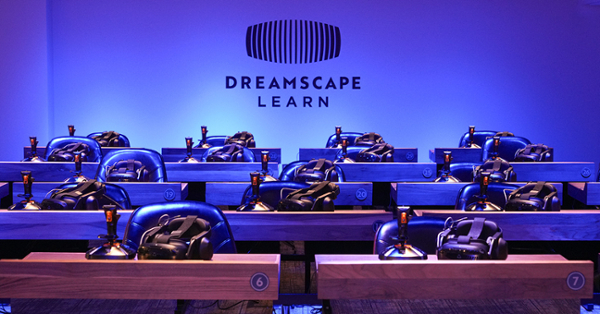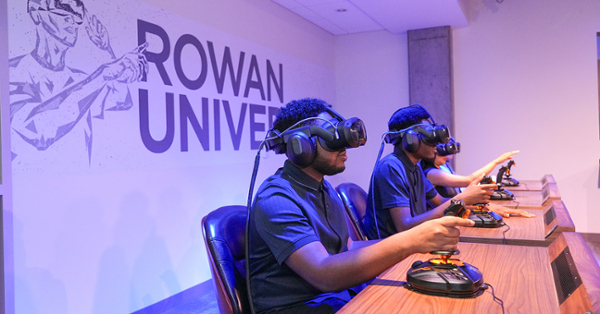Rowan University unveils Dreamscape Learn Center, bringing cinematic storytelling to the heart of college learning
Rowan University unveils Dreamscape Learn Center, bringing cinematic storytelling to the heart of college learning
May 6, 2025
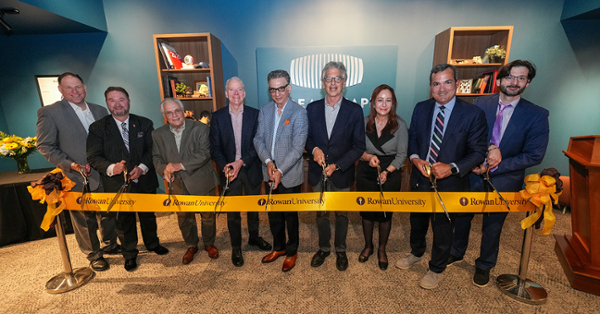
Rowan University President Ali A. Houshmand with Dreamscape Learn co-founder and co-chairman Walter Parkes (center) cut the ribbon Tuesday, May 6, to officially open the Dreamscape Learn Center at Campbell Library.
Rowan University today opened its brand-new Dreamscape Learn Center at Campbell Library, marking a leap forward in immersive, virtual reality-enhanced education. The new center transforms how Rowan students engage with coursework, placing them inside cinematic, interactive stories that make academic concepts feel relevant and deeply resonant.
The state-of-the-art facility features two dedicated VR classrooms, each accommodating 30 students and a faculty member. Outfitted with cutting-edge VR headsets, sensors, and tactile feedback tools like joysticks, fans, and vibration systems, these immersive classrooms allow students to collaborate or work individually inside vivid, interactive worlds.
“We are a future-thinking university and we’re fully invested in bringing this transformational educational tool to those who want to explore its capabilities,” said Rowan University President Ali A. Houshmand. “We know interactive experiences in virtual reality can improve information retention and collaboration between students. Even more, VR extends the classroom into places and situations that we couldn’t reach before. The possibilities are incredibly exciting.”
Rowan’s first course using Dreamscape Learn technology launched this past spring, led by Pamela Watson, Ph.D., who redesigned the university’s introductory biology course for non-STEM majors using Dreamscape Learn’s Biology experience. Designed in collaboration with Arizona State University, Biology in the Alien Zoo sends students on scientific missions inside an intergalactic wildlife sanctuary, where they apply real-world biology concepts to solve problems affecting fictional alien species.
“We’re moving from more traditional instruction towards more storytelling,” said Watson, an assistant teaching professor in the Department of Biological & Biomedical Sciences, Rowan University. “Virtual reality has become one part of the toolkit that we’re using to engage the students in storytelling and those firsthand experiences.”
Students spend about 15 minutes per class inside the VR environment and another two hours in traditional classroom discussions and data analysis. The goal is to help students think and problem-solve like scientists, using storytelling and firsthand experiences to reinforce scientific literacy.
The course uses the same parameters as an actual biological experiment, Watson said. “But now, you can see in a few seconds the effects of an experiment that would otherwise take days or months or years.”
“This is an agile platform for course development,” said George Lecakes, Ph.D., director of immersive technology and learning at Rowan University. “We have full commitment from faculty who are subject matter experts and our team is working with them at an accelerated pace to create new VR courses. We are rapidly transforming their ideas into powerful, immersive experiences—enhanced by the unique capabilities of virtual reality.”
A multiyear study at ASU found that students using Alien Zoo modules were nearly twice as likely to earn an “A” in their lab course compared to peers in traditional wet labs. Building on that research, Watson is now leading a study at Rowan to examine how VR-enhanced learning shapes students’ attitudes toward science and self-perception as scientists.
“Rowan is showing what’s possible when an institution fully invests in immersive learning as a meaningful tool to deepen student engagement, improve learning outcomes, and strengthen connections across the campus and the wider community,” said Josh Reibel, CEO of Dreamscape Learn. “We’re honored to stand alongside their leadership on this journey and are excited to see how they continue to push the boundaries of innovation, shaping new models that others can follow.”
Rowan is already building new VR curriculum with the Dreamscape Software Developer Kit (SDK), expanding how students experience and explore course content. DeMond Miller, Ph.D., professor of disaster science and emergency management, is developing CASCADE (Coordinated Agency Simulation for Catastrophic And Disaster Events), a VR scenario where students respond to a simulated environmental disaster—from landfill leaks to emergency storm response—coordinating across local, state, and federal agencies. Additional projects are underway to design Rowan-made immersive experiences in other academic disciplines, from the humanities and civil engineering to veterinary medicine.
“This center allows us to build the future of education here and now,” Lecakes said, “and we want everyone to be a part of it.”
For more information, contact George Lecakes at (856) 256-5389 or lecakes@rowan.edu.
